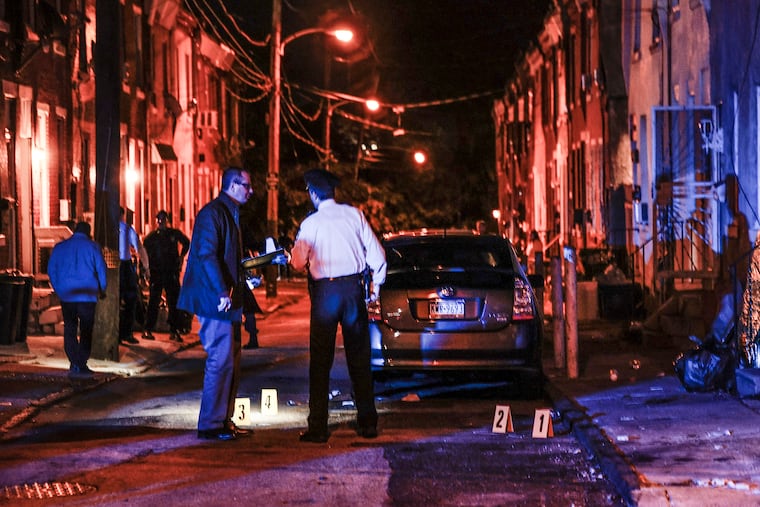Philly police officers must improve 911 response times in Black and brown neighborhoods | Opinion
One of the most disturbing findings of a recent audit was that emergency calls are answered twice as fast in districts that have the highest white populations. That has to change.

I have spent the last five months serving on the Community Advisory and Accountability Council, a broad coalition of community activists, religious leaders, and other concerned Philadelphians, engaged by the City Controller’s Office in conjunction with its audit of the Philadelphia Police Department.
Our function was to ensure that the controller’s audit responded to questions and concerns we and our neighbors have had about how the department operates, the challenges officers face, and ways to improve relationships between the police force and the citizens they are sworn to protect and serve.
As most Philadelphians are now aware, the audit uncovered significant institutional problems in the operations and processes of the Police Department. Chief among these are budgeting and staffing systems based on historical practices rather than systems that consider what the community currently needs, and what will be needed in the future.
The shortcomings the audit reveals are not those of officers on the ground — they were never the subject of the audit — but with outmoded operations and practices that diminish the department’s effectiveness and make us all less safe. One critical finding, for example, is that several entrenched and outdated practices severely diminish the number of sworn officers who could otherwise be available for street patrol. Too few officers on the streets makes life less safe for the officers themselves as well as the people they serve.
» READ MORE: A damning audit of the Philadelphia police must be an impetus for real reform | Editorial
One particularly disturbing finding the audit made, that has rightfully garnered a lot of attention, is that 911 calls are answered twice as fast in districts that have the highest white populations as in districts that are made up mostly of people of color.
In several underserved districts, response times to 911 calls for “priority 2″ events, which include automobile crashes with injuries and domestic incidents, can exceed 40 minutes. Imagine having to wait 40 minutes for police to arrive when your child has been hurt in a crash or your son-in-law is making drunken threats of violence to your daughter and grandchildren.
Police Commissioner Danielle Outlaw has tweeted in response that while this statistic is accurate, it needs to be placed in context. She said that the city’s “most high-crime districts often experience higher priority assignments which are complex and require more time to complete” which “reduces the amount of officers available to answer pending 911 calls.”
This answer is tragically unhelpful. It suggests that the Police Department is unable or unwilling to assign more officers than it currently does to these “higher-crime” neighborhoods — despite knowing that there aren’t enough officers there to respond to the need.
Not assigning, or having available, enough officers in these neighborhoods to be able to respond quickly to 911 calls is exactly the concern. It’s a concern for the officers who are then overworked and who don’t have sufficient backup for their own safety. And it’s disastrous for people who live and travel in and out of those districts because their lives are less safe than they should be and that they need to be.
The controller’s audit report contains some straightforward ways to free up officers who could, in turn, be made available to be on patrol. Hire civilians to do administrative work, rather than using uniformed officers to do it. Use simple technology — like email — to transmit information, rather than having uniformed officers hand-deliver memos. Distribute patrol officers around the city based on current and predicted needs, as determined using input from the community, rather than past staffing levels.
A failure to act in the face of this audit means that residents in predominantly Black and brown communities, and the officers who serve them, will remain less safe than those in white communities. A failure to act says that we Philadelphians endorse the belief that Black and brown lives matter less. We ignore or dismiss the information the controller’s police audit provides, and the organizational solutions it offers, at the peril of real people.
Amy Gershenfeld Donnella is a member of the City Controller’s Community Advisory and Accountability Council. A capital defense attorney, she also serves as an adjunct professor at Villanova University’s School of Law.